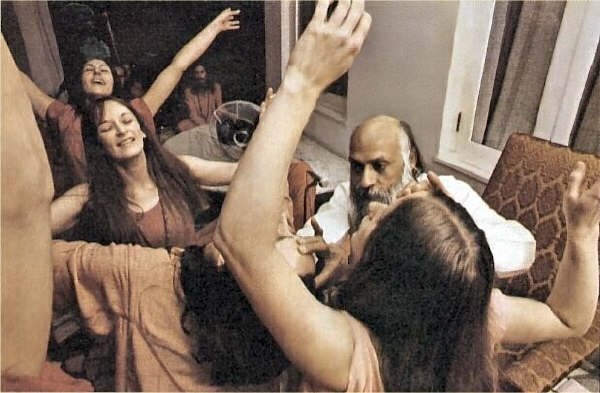Try to make something perfect and it will remain imperfect. Do it naturally and it is always perfect.
Nature is perfect; effort is imperfect. So whenever you are doing something too much, you are destroying…OSHO
A Zen master was making a painting, and he had his chief disciple sit by his side to tell him when the painting was perfect. The disciple was worried and the master was also worried, because the disciple had never seen the master do anything imperfect. But that day things started going wrong. The master tried, and the more he tried, the more it was a mess.
In Japan or in China, the whole art of calligraphy is done on rice-paper, on a certain paper, a very sensitive paper, very fragile. If you hesitate a little, for centuries it can be known where the calligrapher hesitated — because more ink spreads into the rice-paper and makes it a mess. It is very difficult to deceive on rice-paper. You have to go on flowing; you are not to hesitate. Even for a single moment. split moment, if you hesitate — what to do? — missed, already missed. And one who has a keen eye will immediately say, "It is not a Zen painting at all" — because a Zen painting has to be a spontaneous painting, flowing.
The master tried and tried and the more he tried — he started perspiring. And the disciple was sitting there and shaking his head again and again negatively: 'No, this is not perfect.' And more and more mistakes were being made by the master.
Then the ink was running out so the master said, "You go out and prepare more ink." While the disciple was outside preparing the ink, the master did his masterpiece. When he came in he said, "Master, but this is perfect! What happened?"
The master laughed; he said, "I became aware of one thing: your presence. The very idea that somebody is there to appreciate or to condemn, to say no or yes, disturbed my inner tranquility. Now I will never be disturbed. I have come to know that I was trying to make it perfect and that was the only reason for its not being perfect."
Try to make something perfect and it will remain imperfect. Do it naturally and it is always perfect. Nature is perfect; effort is imperfect. So whenever you are doing something too much, you are destroying.
That's why it happens: everybody talks so beautifully; everybody is a talker; people talk their whole life — but just put them on a platform and tell them to talk to a crowd, and suddenly they become dumb; suddenly they forget everything, suddenly they cannot utter a single word. Or, even if they do utter, it is not graceful, it is not natural, it is not flowing. What has happened? And you have known this man talking so beautifully to his friends, to his wife, to his children. These are also people, the same people — why are you afraid? You have become self-conscious. Now the ego is at stake: you are trying to perform something.
Listen carefully: whenever you try to perform something, you are searching food for the ego. Whenever you are natural and let things happen, they are perfect, and then there is no problem. When you are natural and let things happen, God is at the back with you. When you are afraid, trembling, trying to prove something, you have lost God. In your fear, you have forgotten Him. You are looking more at the people and you have forgotten your source. Self-consciousness becomes a weakness. A person who is unself-conscious is strong, but his strength has nothing to do with himself — it comes from the beyond.
OSHO


